Classic movies for April 30th
During the days when the whole country is looking towards the 50th anniversary of the liberation of the South and the reunification of the country, classic war films become a bridge to bring the audience back to the heroic years of the country.
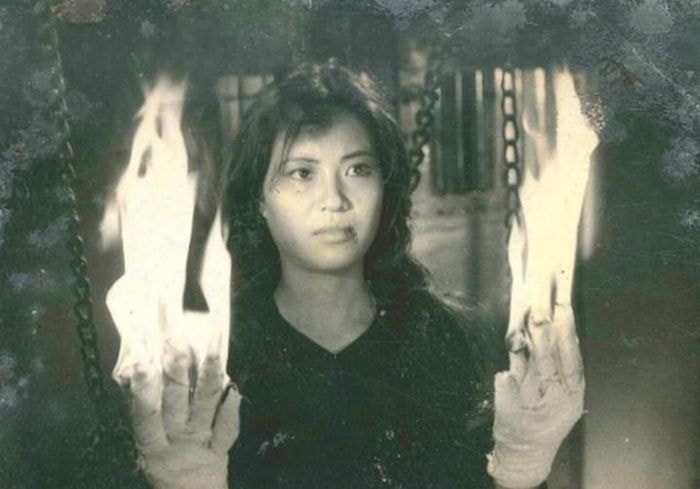
The Wind Rises (1966)
The film "Noi Gio" is adapted from the play of the same name by Dao Hong Cam, directed by Huy Thanh, and deals with a topical issue in the late 1960s, when many families had children on opposing sides during the war. In the film, the older sister Van (played by People's Artist Thuy Van) was a revolutionary, while her younger brother Phuong (played by The Anh) was an officer of the Republic of Vietnam. Because of her revolutionary activities, Van was brutally tortured, and her son was killed. She pretended to be crazy to make it easier to operate in prison.
"Windy" was the first work to win the Golden Lotus Award for feature films at the first Vietnam Film Festival (1970), and was also one of three films that helped director Huy Thanh receive the State Prize for Literature and Arts in 2007. According to the book "History of Vietnamese Cinema", this was the first feature film about the struggle of the people of the South against the US.
17th Parallel Day and Night (1972)
Director Hai Ninh's film revolves around life on both sides of the border that divided Vietnam during the war against the US. The central character is Diu (Tra Giang) - a woman who stayed on the southern bank when her husband regrouped to the North. She became a party cell secretary and was imprisoned many times by the southern government.
Screenwriter Hoang Tich Chi said he came up with the idea for the script after meeting a female party secretary from the South who was working in the North.
The work marked the pinnacle of artist Tra Giang's performance. At the 1973 Moscow International Film Festival (Russia), she won the Best Actress award, and the work won the World Peace Council award. According to director Hai Ninh, American star Jane Fonda exclaimed when watching the scene where Diu gave birth in prison: "I think American mothers also need to see this image." Actor Lam Toi also made an impression in the role of the educated villain.
Monsoon Season (1978)
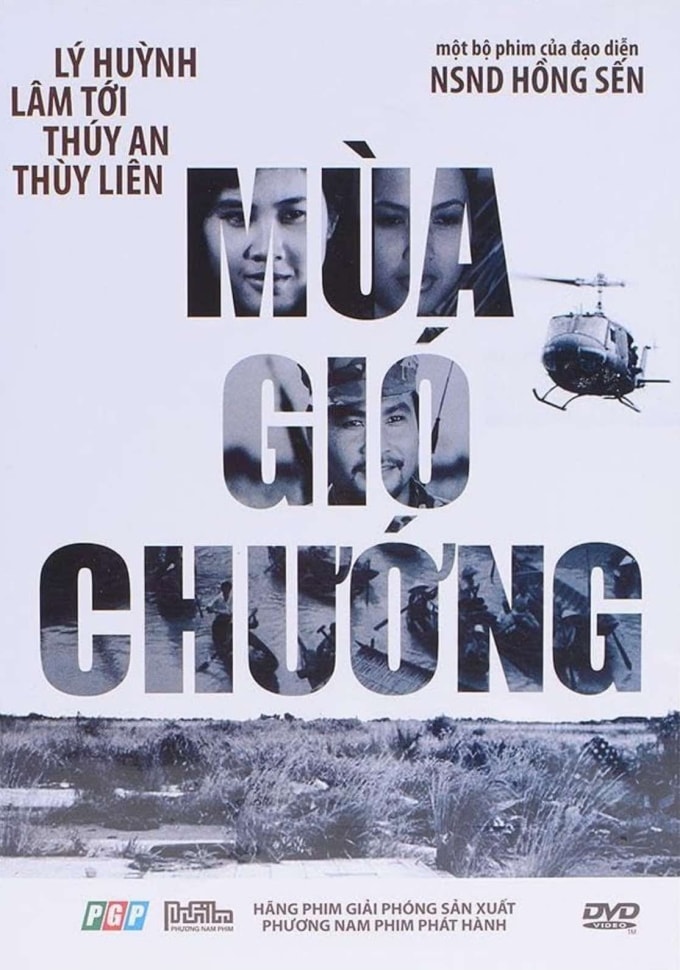
The war-themed film was directed by Hong Sen and written by writer Nguyen Quang Sang based on his short story of the same name. The work depicts the revolutionary fighting spirit of the Vietnamese people.
The main characters are Chau (Nguyen Phuc) and Nam Bo (Minh Dang), two liberation army soldiers sent to work in a locality in the Southwest. Here, Chau meets Be Ba (Thuy An), a beautiful liaison. Nam Bo also meets his lover Sau Linh (Thuy Lien), a local guerrilla commander. They prepare to fight against the sweep while the enemy plans to force people to establish hamlets, "drain the water to catch fish". On the other side of the battle line is Captain Long (Ly Huynh), who actively organizes sweeping operations. During one battle, Chau is sacrificed and Nam Bo is captured. Sau Linh, along with soldiers and villagers, breaks into Long's house, captures Long alive, forces him to release Nam Bo and declare his surrender to the revolution.
"Monsoon Season" won the Silver Lotus at the 5th Vietnam Film Festival and received a certificate of merit from the Arab and Asian Film Festival in 1979.
The Wild Fields (1979)
"The Wild Field" is one of the famous films of revolutionary cinema. Writer Nguyen Quang Sang wrote the script, Trinh Cong Son composed the music, and Nguyen Hong Sen directed. The work won many prestigious awards such as the Golden Lotus at the 1980 Vietnam Film Festival and the gold medal at the 1981 Moscow International Film Festival.
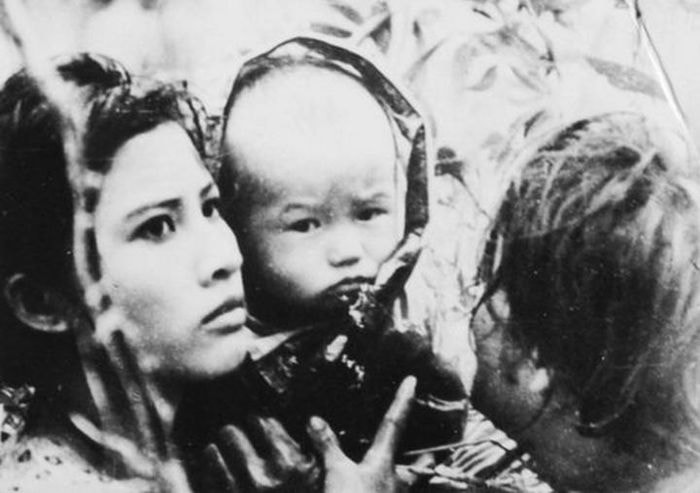
The script is set in the Dong Thap Muoi region during the war, revolving around a couple Ba Do (artist Lam Toi), Sau Xoa (Thuy An) and their young child in a small hut in the middle of a stream. Their important task is to maintain communication lines for the army. In the midst of battles, they have to raise their children and search for food. The US military considers this an important target that needs to be destroyed to suppress the resistance in this area.
Many scenes later became classic segments of domestic cinema, such as Ba Do and his wife putting their nearly one-year-old son in a nylon bag, tying the bag's mouth and drowning him in water to escape the enemy.
The Card Game (1982)
"The Upside Down Card" is an 8-episode television series about intelligence directed by Khoi Nguyen (real name Le Hoang Hoa), produced by Ho Chi Minh City General Film Company (now Giai Phong Film Studio) in the years 1982 - 1987.
The work is inspired by the revolutionary activities of the heroic martyr Pham Ngoc Thao. Writer Nguyen Truong Thien Ly (Tran Bach Dang) wrote the script, with the participation of actors such as Nguyen Chanh Tin (as Nguyen Thanh Luan), singer Thanh Lan and Thuy An (as female intelligence agent Thuy Dung, wife of Nguyen Thanh Luan).
Saigon Commando (1985)
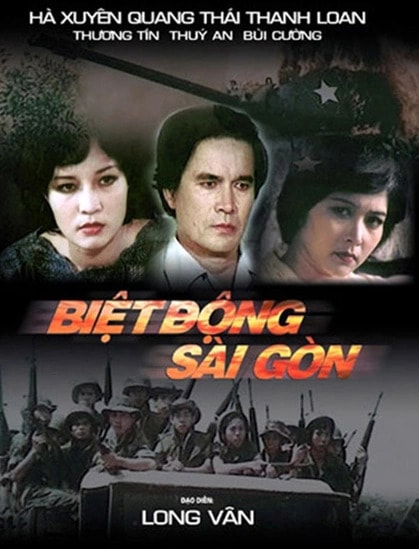
The film tells the story of the exploits of the special forces in the resistance war against the US, including Tu Chung - the intelligence chief and his comrades Ngoc Mai, Sau Tam, Huyen Trang, Nam Hoa (codename K9). Mr. Vu Van Nha - the film's director - once said that after its release, the work attracted more than 10 million viewers in theaters from the South to the North. "Saigon Special Forces" was produced by the Vietnam Feature Film Studio, written by Le Phuong and Nguyen Thanh, and started filming in 1982 and lasted about 4 years.
Dong Loc Junction (1997)
The work of director Luu Trong Ninh, scripted by Nguyen Quang Vinh is based on a true event in 1968 about 10 female youth volunteers of Squad 4, Company 552, Youth Volunteers General Team at Dong Loc intersection, Can Loc district, Ha Tinh province. The film won the Golden Lotus Award at the 12th Vietnam Film Festival in 1999, the A prize of the Vietnam Cinema Association in 1997 and the Award of the Korean Peace Protection Committee at the International Film Festival of Non-Aligned Countries in Pyongyang in 1998.
Liberation of Saigon (2005)
"Liberation of Saigon" premiered in 2005, based on the work "Saigon - The Epic" by writer Hoang Ha but with some parts omitted. The film was invested with 12.5 billion VND and produced over 13 years, from 1991 - 1992. The Liberation Film Studio produced it to commemorate the event of April 30, 1975. The main characters are all historical figures such as General Secretary Le Duan (Meritorious Artist Ha Van Trong), General Vo Nguyen Giap (Khuong Duc Thuan), Secretary of the Central Office for Southern Vietnam Pham Hung (Meritorious Artist Hoang Quan Tao), and Politburo Special Envoy Le Duc Tho (Duong Trong Hieu).
Don't Burn (2009)
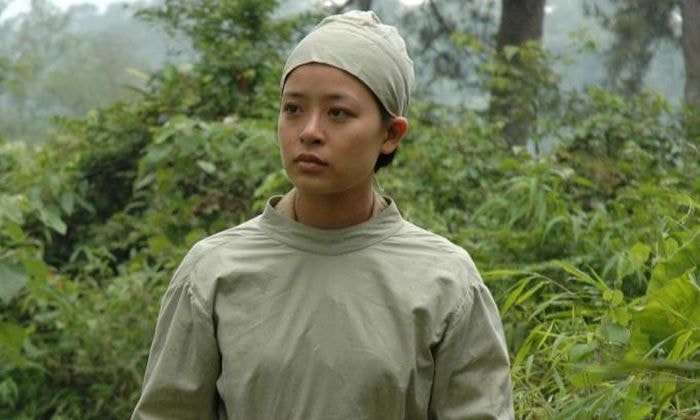
The story of the life of martyr Dang Thuy Tram was adapted into a film by director Dang Nhat Minh in 2009, with actress Minh Huong playing the role of Dr. Tram. The work caused a big stir and won awards such as the Golden Lotus at the 16th Vietnam Film Festival (2009), winning 6 categories of the Golden Kite Award.
The Scent of Burning Grass (2012)
The work was released in 2011, directed by Nguyen Huu Muoi, with poet Hoang Nhuan Cam as the screenwriter, based on the diary "Forever 20" of martyr Nguyen Van Thac, recreating the 81-day and night battle at Quang Tri Citadel in 1972. The main characters of the film include four soldiers Hoang, Thanh, Thang, and Long. Originally university students, at the call of the Fatherland, they were willing to put aside all their ambitions to go to battle.
The project won the 2011 Golden Kite Award for Feature Film and the Silver Lotus Award at the 17th Vietnam Film Festival. In September 2012, the work was selected to represent Vietnam in the Best Foreign Language Film category at the Oscars but did not pass the preliminary round.
